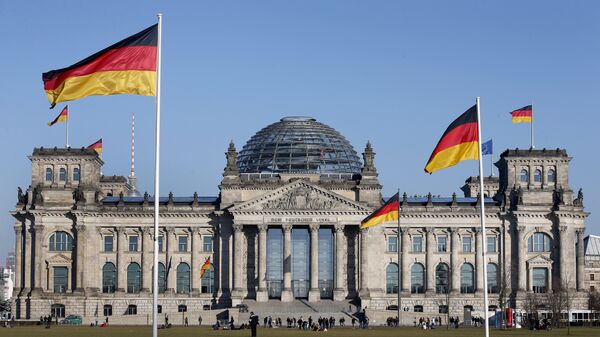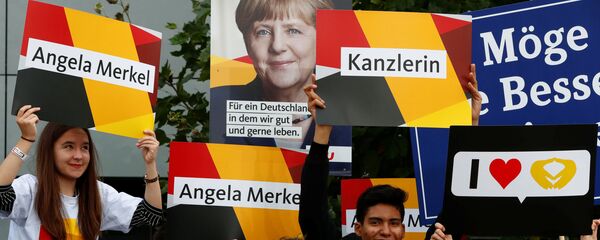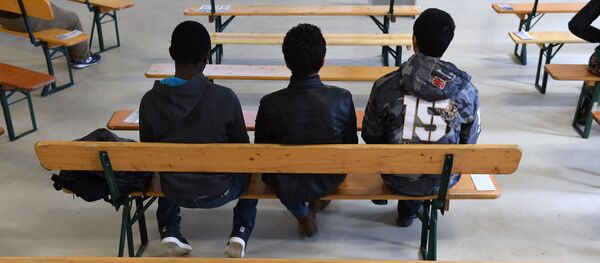'Trust and Stability'
As most of his colleagues, Josef Janning, the head of the Berlin office of the European Council on Foreign Relations, believes that German Chancellor Angela Merkel and her CDU/CSU alliance are set to win the upcoming race that is set to take place on September 24.
According to him, Merkel's party offered voters "trust and stability," while statements from her rival, Social Democrat Martin Schulz, about social justice turned out to be "less appealing."
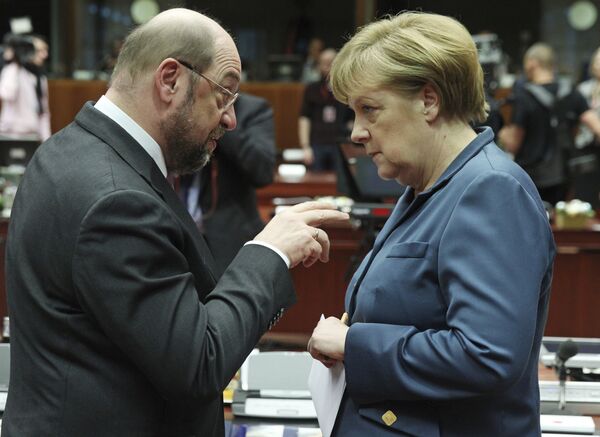
Angela Merkel: Best of a Bad Lot
During Merkel's chancellorship over the last 12 years, the situation within the country has remained stable compared to other EU countries where economic problems and unemployment have become more evident.
"Merkel has been subject to criticism many times, and often it was justified, but while electing someone, people always have to choose not the best candidate, but rather the best of a bad lot," the expert noted.
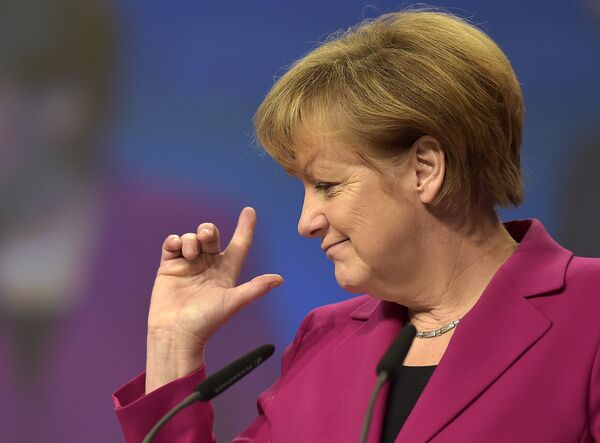
Winner is Known in Advance
The election campaign is neither interesting nor meaningful, since the winner is known in advance, a senior lecturer at the University of Göttingen, Peter W. Schulze, told Sputnik.
"Merkel's opponent has been unable to challenge the government and recover after the defeats at the beginning of the year," the analyst noted.
In Schulze's opinion, Martin Schultz had few chances to take the upper hand over Merkel from the very beginning.
"There were almost no chances for a real fight," the expert said.
However, Schulz failed to "fulfil these expectations and apply them to issues that concern the population" including the refugee crisis, the Ukrainian conflict or German-Russian relations, the expert noted.
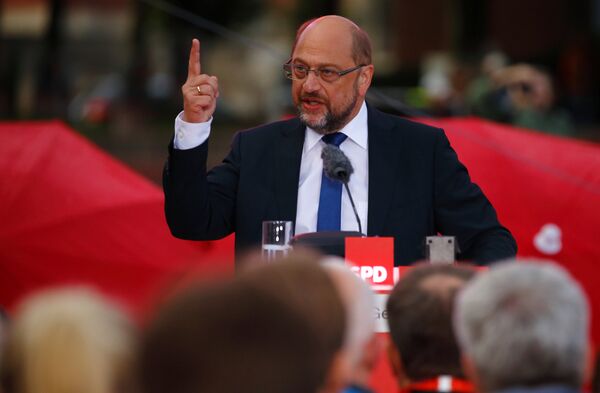
Who's Going to Rank Third?
The most apparent problem of the SPD election campaign is "the absence of a global topic that could polarize society," German political scientist Oskar Niedermayer told Sputnik.
At the same time, these shortcomings in the political agenda of the Social Democrats have led to a more active struggle between smaller parties — liberals from the Free Democratic Party (FDP), the Greens, members of the Left Party, as well as populists from Alternative for Germany, the expert stated, adding that the central question of the upcoming election campaign is about which party would win third place.
Protest Voting
In his turn, political analyst Alexander Rahr noted that Alternative for Germany might show good results in the ongoing race, mainly because it attracts a lot of protest voters dissatisfied with the political status quo of centrist parties.
"I can even imagine that in the east of the country, in the former GDR, AfD would rank second, an outcome that will be viewed by many as a catastrophe," Rahr said.
According to the analyst, the main topic people are interested in is not social justice, but refugees and internal security.
"In this regard, AfD makes sharp statements that many other parties that fear to break up with the mainstream can't afford," the expert concluded.

